For many people interested in genealogy research, 23andMe or Ancestry.com is usually the first choice among DNA testing platforms — but there are several other options to consider if you want more depth and breadth in your results.
While FamilyTreeDNA may not be the most popular ancestry service today, it’s still highly sought after by genealogy enthusiasts interested in deep paternal and maternal line testing, as well as combined family ancestry. Founded in 2000, it is one of the oldest companies to make consumer-grade genetic testing accessible to the public.
In this FamilyTreeDNA review, we’ll take a look at the platform’s strengths and weaknesses from an unbiased perspective. You'll learn about its testing process, the types and quality of results, user opinions, and other key aspects that can help you decide if it’s the right service for your genealogical journey.
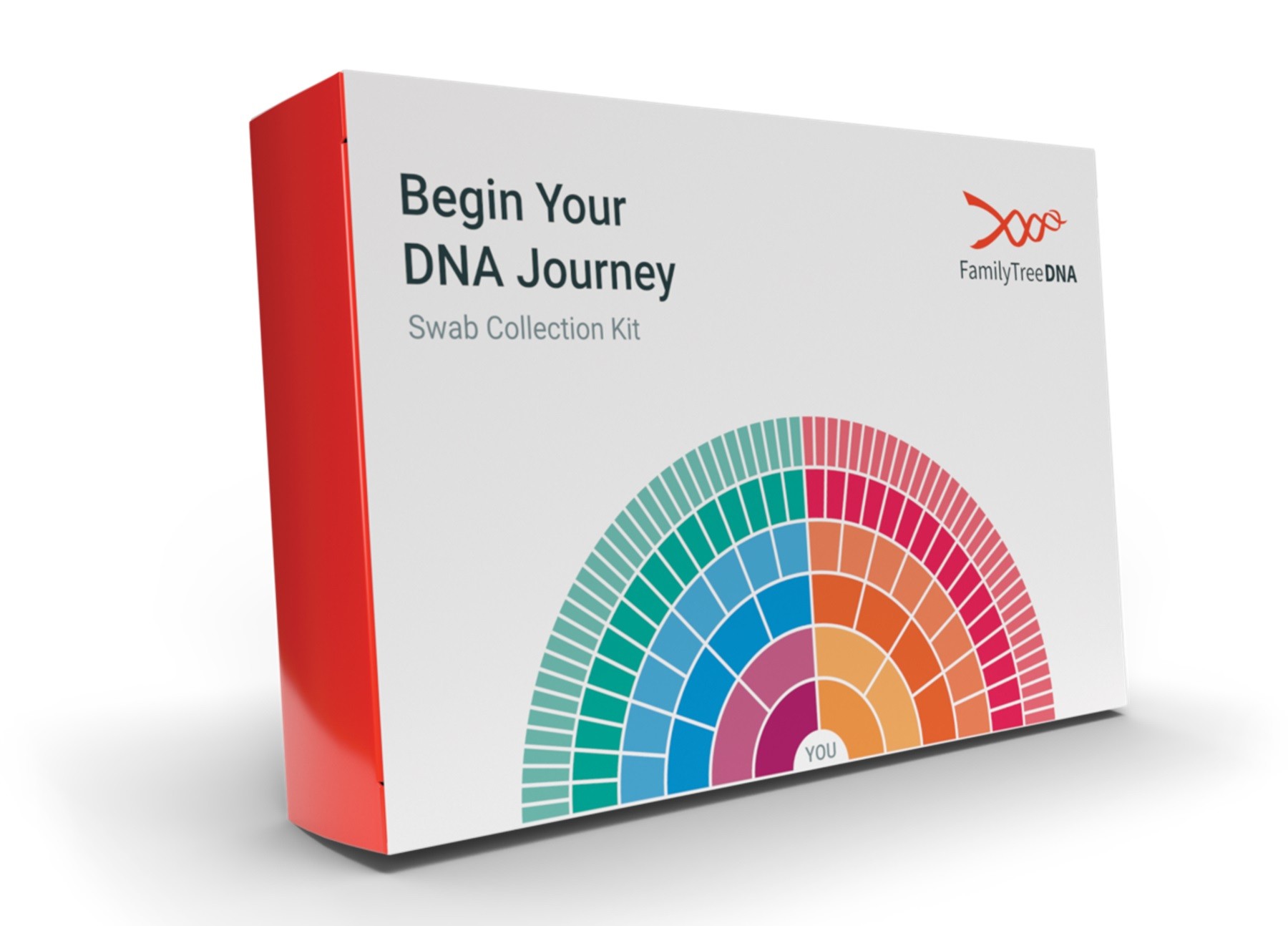
Source: FamilyTreeDNA
FamilyTreeDNA: An overview
FamilyTreeDNA (or FTDNA) keeps its range of services focused on genealogy and deep ancestry analysis. You can purchase four types of DNA testing kits on the platform, namely:
Family Finder: This test reads your autosomal DNA, i.e., the 22 pairs of your non-sex chromosomes, to break down your recent ancestry and potentially match you with relatives from as far as five generations back.
mtDNA: This test reads your mitochondrial DNA to break down the ancestry on your maternal side and match you with your maternal-line relatives from its database.
Y-DNA (for genetic males only): This test analyzes your Y sex chromosomes to break down the ancestry on your paternal side, track your surname origin, and match you with potential paternal-line relatives.
Big Y-700 (for genetic males only): This test offers deeper insights into your paternal ancestry, including information about your Y-DNA haplogroup and exclusive reports for branched-off surnames.
Results of the autosomal test may take only two to four weeks, while Y-DNA and mtDNA analyses usually take longer, sometimes up to eight weeks.
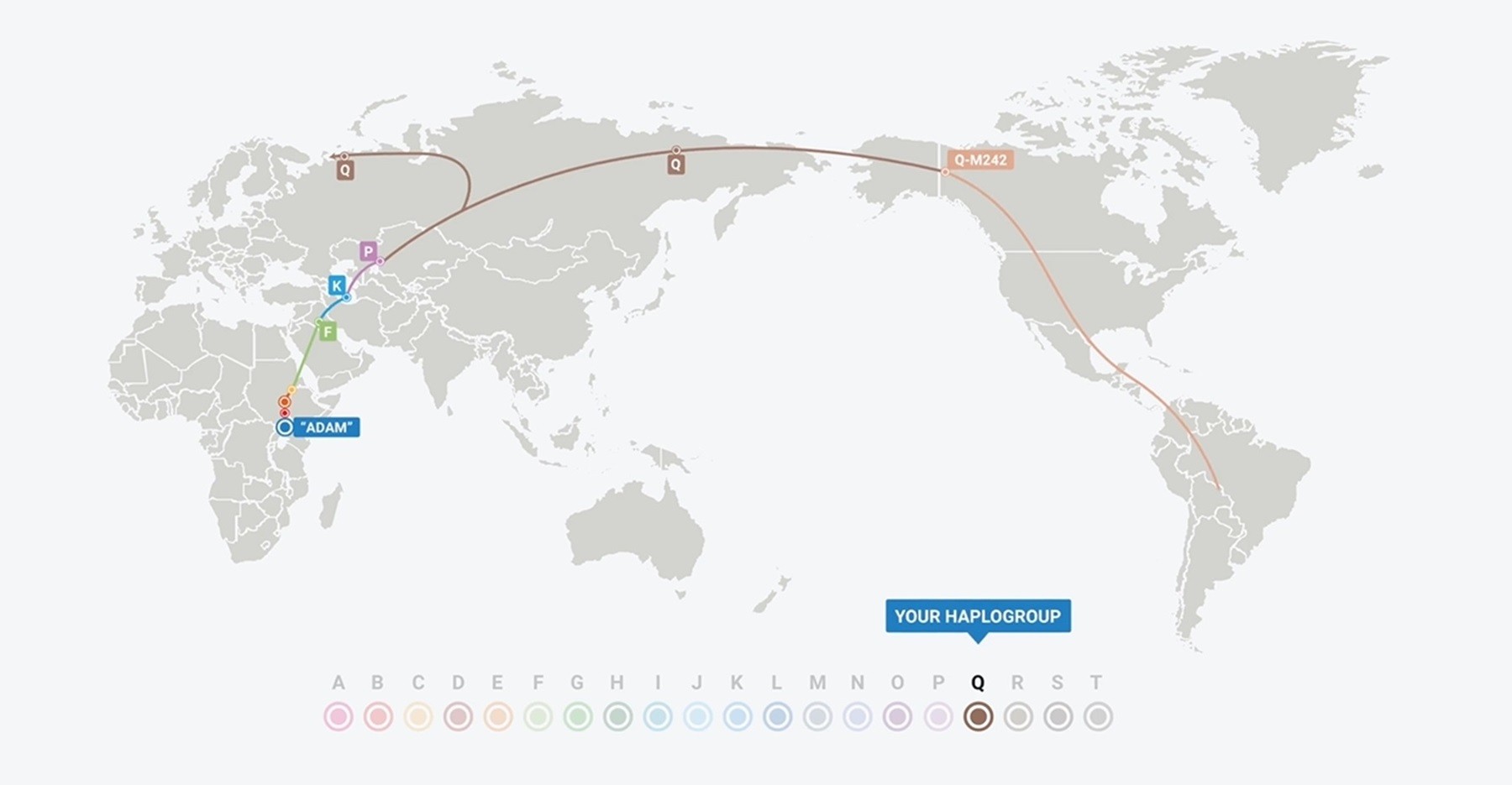
Source: FamilyTreeDNA
Like most other ancestry platforms, FTDNA mainly relies on genotyping technology — which analyzes a small part of your DNA to uncover your ethnicity and genetic matches.
The platform offers additional features to complement your genealogy research, such as the chromosome browser and painter, that help you understand the shared DNA segments with your family matches.
FTDNA also lets you participate in group projects, where you collaborate with other users to build a stronger DNA database for a specific surname, haplogroup, or geographical region.
FamilyTreeDNA review: 5 key factors to consider
Now that you’re familiar with FamilyTreeDNA’s basic products and features, let’s dive into the specifics of how the service works in practice. We’ll zoom in on five key aspects that can help shape a well-rounded opinion on the platform:
Autosomal and haplogroup functionalities
Database size and accuracy of results
Pricing and value for money
Privacy and security
Customer service and user opinions
1. Autosomal and haplogroup functionalities
The depth of ancestry findings mainly hinges on the autosomal and haplogroup functionalities available on a platform.
FTDNA analyzes your autosomal DNA, the genetic material you inherit from both parents, on its basic test, Family Finder (worth $79). The analysis helps you:
Learn the geographical origin of specific segments of your DNA.
Find out if you share DNA with ancient European groups.
Discover people from the database you share autosomal DNA with.
You can also create a comparison matrix to assess whether your DNA matches are related from the paternal or maternal side and analyze the shared DNA segments with yours using the chromosome browser.
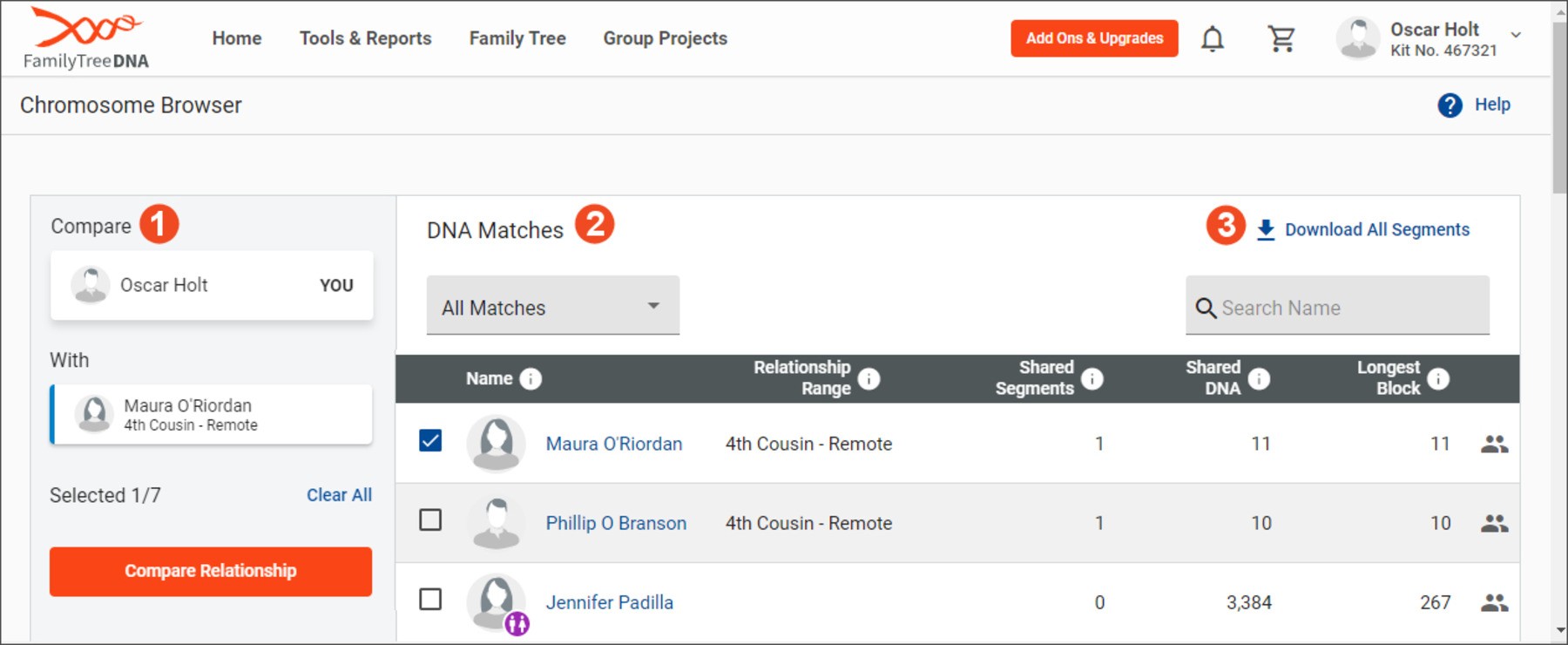
Source: FamilyTreeDNA
If you go with one of the more extensive haplogroup tests (mtDNA or Y-DNA), FamilyTreeDNA will analyze your maternal or paternal ancestry, reveal your ancestors’ migration patterns, and look for your DNA matches from its Y-DNA and mtDNA databases.
The most premium product, Big Y-700 (worth $449), unlocks comprehensive ancestry insights and includes additional tools such as block tree matching, which lets you visualize your lineage and surname evolution throughout history.
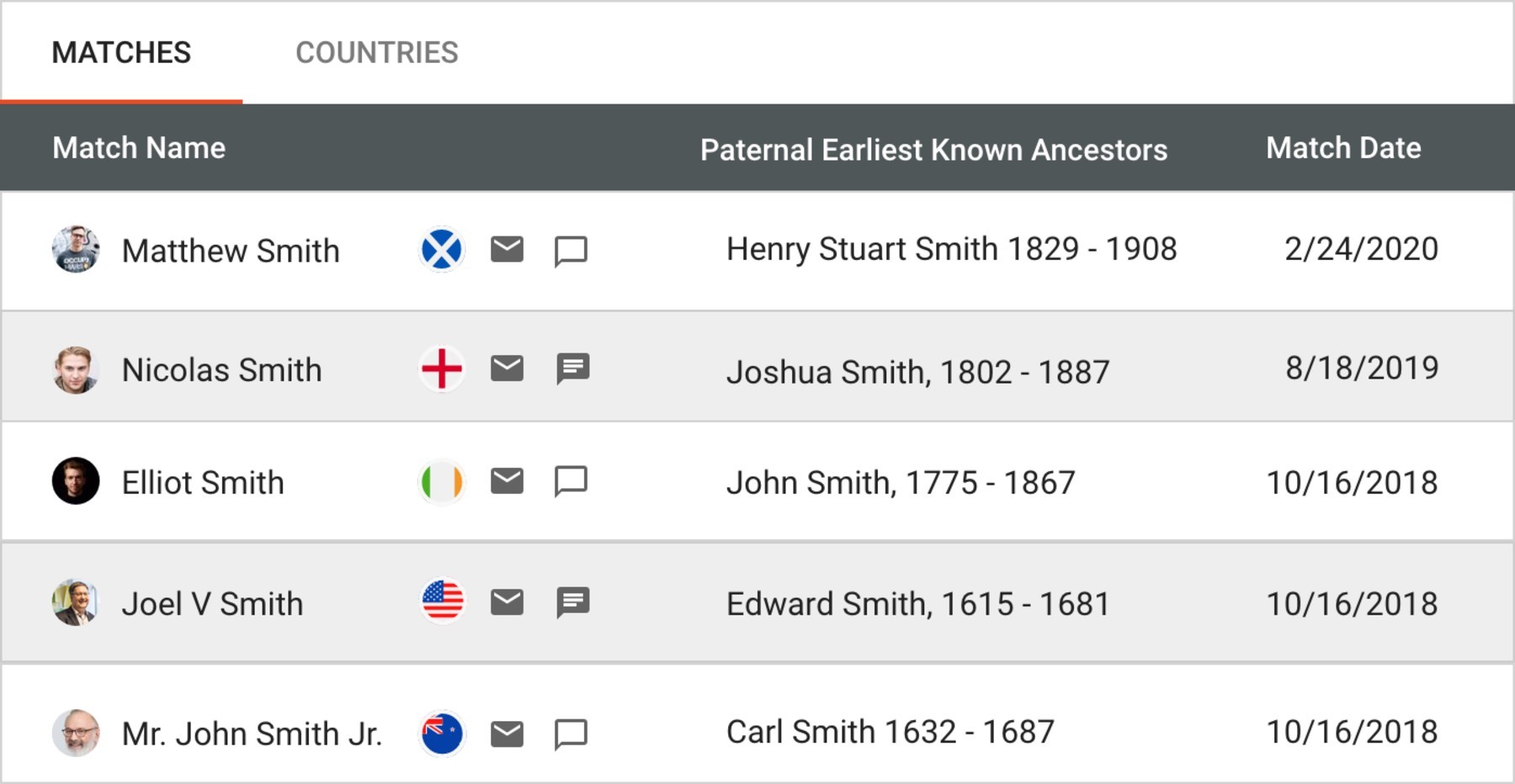
Source: FamilyTreeDNA
Many customers like the depth of ancestry features available on FTDNA, especially options like segmented data matches and chromosome mapping.
Bonus read: Check out our reviews of popular ancestry DNA tests:
2. Database size and accuracy of results
FTDNA uses its proprietary system, myOrigins 3.0 (updated in 2020), to compare your genetic data with 90+ population clusters from around the world. Its database size is ~2 million users, which is significantly less compared to services like Ancestry.com and 23andMe. The limited data and updates may impact the accuracy of the analyses.
The more recent FamilyTreeDNA reviews suggest that the platform may sometimes provide inaccurate ethnicity and haplogroup information. Similarly, according to the International Society of Genetic Genealogy, FTDNA’s results may be less sophisticated than those of other tests and can lack specificity. Some users have also reported not receiving any matches on the platform.
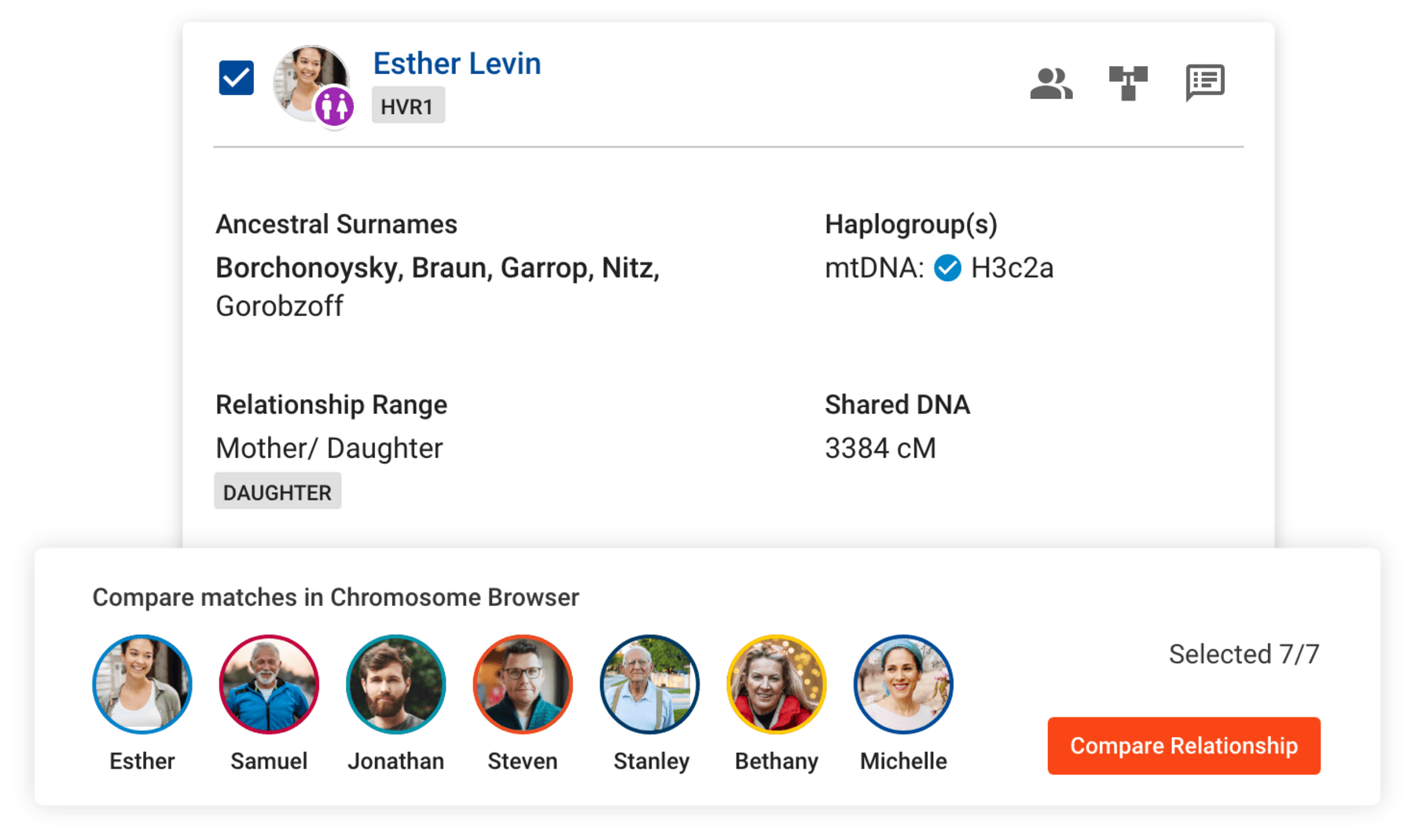
Source: FamilyTreeDNA
Another disadvantage of FTDNA is that it doesn’t offer health-based genetic insights to offset the limited ancestry database. Many of its competitors, like MyHeritage and 23andMe, provide DNA health reports to appeal to customers. Still, it’s worth noting that while these health reports can be perceived as useful, they are typically incomplete and not too reliable because such platforms analyze less than 0.1% of your DNA.
Tip 💡
Genealogy research is only a minor benefit of genetic testing. One of the best ways to leverage genetic data is to use it to personalize your health and lifestyle choices.
Today, you have platforms like Nucleus to help you get clinical-grade DNA health analyses with a simple at-home test. Nucleus uses the more advanced whole-genome sequencing technology to analyze ~100% of your DNA and provide detailed insights into your cardiovascular health, neurological conditions, mental health, etc.
Nucleus algorithm also considers non-genetic factors like your age and BMI to provide tailored and nuanced disease risk reports that can help you take proactive steps to improve your health and longevity outcomes. Order your complete Nucleus health testing kit today.
3. Pricing and value for money
FamilyTreeDNA offers one of the most affordable basic autosomal tests in the industry at $79. Its ancestry plans cost the following:
FTDNA typically stores your DNA sample for 20 years (with your consent), so you can upgrade to the more expensive products effortlessly.
You’ll see that many users have expressed discontent with FamilyTreeDNA’s pricing, sharing that the service often locks advanced analyses behind an additional paywall. Some customers also consider the Big Y-700 test too expensive for the price.
It’s important to note that FamilyTreeDNA has discontinued the free family tree builder tool in 2024, so users now have to transfer their trees to MyHeritage to continue editing them. You may also have to pay for a MyHeritage subscription to expand your tree beyond a certain limit.
4. Privacy and security
FTDNA processes DNA samples in its own U.S.-based, CAP/CLIA-certified lab and employs industry-standard measures to keep your information safe.
Although the platform claims that it doesn’t sell or share your sensitive information with third parties, the company admitted to disclosing genetic data to the FBI in 2019. This upset some users as most weren’t aware of the exchange even though it technically occurred in compliance with the terms of service.
Bonus reads: Discover our unbiased opinions of other DNA testing platforms:
5. Customer service and user opinions
Despite the many shortcomings around database size and limited reports, FTDNA remains a popular DNA testing platform among users. Many positive reviews of the platform praise its mtDNA and Y-DNA analyses.
Unfortunately, the platform also attracts negative attention at times due to its subpar customer service. The following table summarizes FTDNA’s ratings on popular review websites (sourced October 2024):
Among the most common problems customers list include delays in the arrival of kits, longer processing times, and lost samples.
A few reviews also suggest that FamilyTreeDNA’s platform is not user-friendly. Actions like deleting data and canceling accounts can be difficult to complete and may require you to contact customer support. Also, the platform seems to have occasional technical glitches that hinder the user experience.
To summarize, here’s a rundown of FTDNA’s pros and cons:
Takeaway: Is FamilyTreeDNA worth it?
While FamilyTreeDNA can prove useful for some genealogy enthusiasts, the outcome may not justify the cost for all users as the service has a small database and limited analyses. You’ll likely get more relative matches using ancestry platforms with broader databases. You can still use the platform to upload your Ancestry or MyHeritage file and connect with the available matches, which is free.
Regardless of the ancestry service you choose, consider pairing it with Nucleus whole-genome DNA health test to support longevity choices like:
Making lifestyle changes to reduce your disease risks
Genetics-conscious family planning
Exploring proactive treatments and therapies tailored to your health
The Nucleus Premium all-in-one DNA health kit offers a clinical-grade test that analyzes your entire genome (almost all its 6 billion DNA data points) to provide thorough and personalized insights into your genetic risks and traits with 99.9% accuracy.
Nucleus stands out among other DNA health services because its advanced whole-genome technology can target even rare genes that lead to chronic conditions — most tests fail to detect rare genetic variants.
Nucleus: Actionable health insights for you and your family
Nucleus’ affordable and easy-to-use testing is designed to help you and your family access better health choices. Besides using the latest sequencing technology, Nucleus accounts for your ancestry (European, African, South Asian, East Asian, etc.) and non-genetic factors (blood pressure, cholesterol levels, etc.) to provide a personalized health assessment.
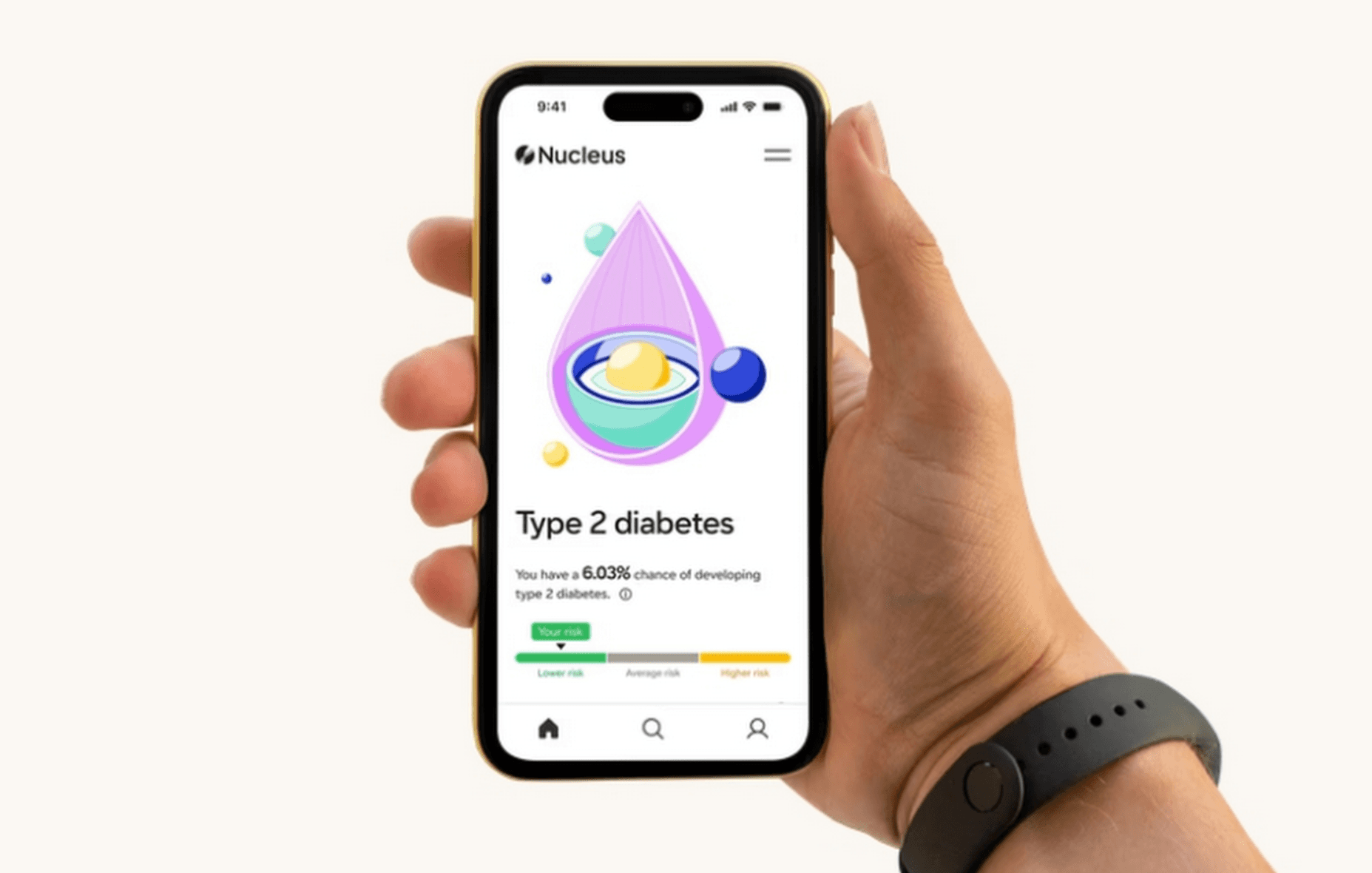
Source: Nucleus
Nucleus currently screens for 170+ diseases spanning categories such as:
Cancer (including rare cancers)
Cardiovascular disease
Neurological conditions
Mental health
Focus and energy
Food and diet
Autoimmune conditions
Additionally, the test can detect rare and high-effect genetic differences that can cause or significantly increase your risk for a condition, which consumer-grade tests like 23andMe miss. The reports can also reveal:
Any hereditary conditions that you may pass on to your children
Your genetic traits like muscle strength and allergies
Nucleus is a physician-approved test but comes with straightforward reports anyone can interpret. Still, if you need diagnostic guidance on your results, the platform can connect you with a genetic counselor through its SteadyMD partner network.
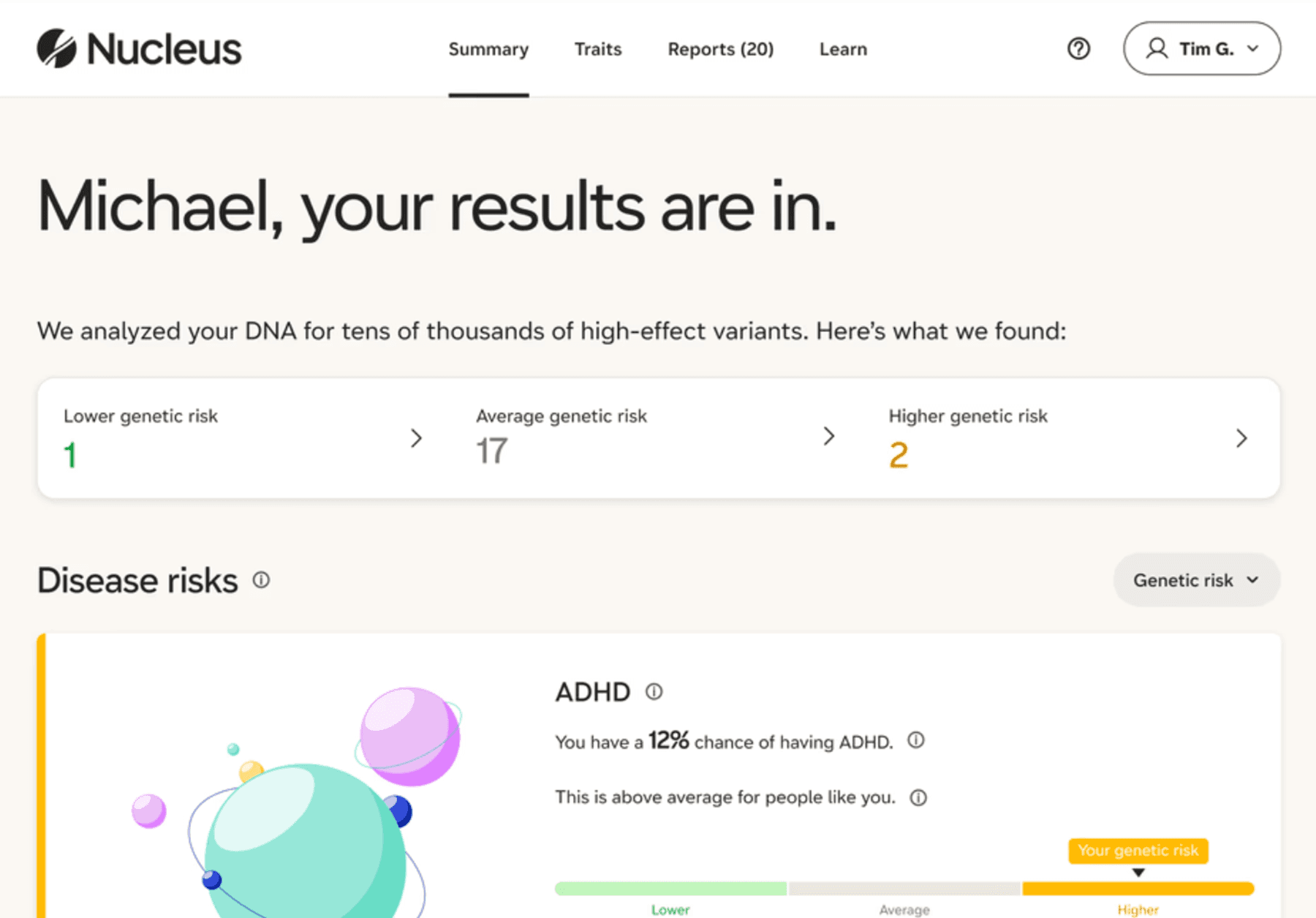
Source: Nucleus
Nucleus is fully regulated and dedicated to quality, accuracy, and privacy. The platform:
Is HIPAA-compliant
Works with CAP/CLIA-certified labs only
Processes all samples in the U.S. and on U.S. machines
Get your Nucleus Premium kit
At [PRICE.KIT_SOLO.ONE], the Nucleus Premium kit is the most affordable whole-genome test in the U.S. You unlock all available health reports at a single price point. You can also choose to get updated reports as new genetic research becomes available or your lifestyle habits change.
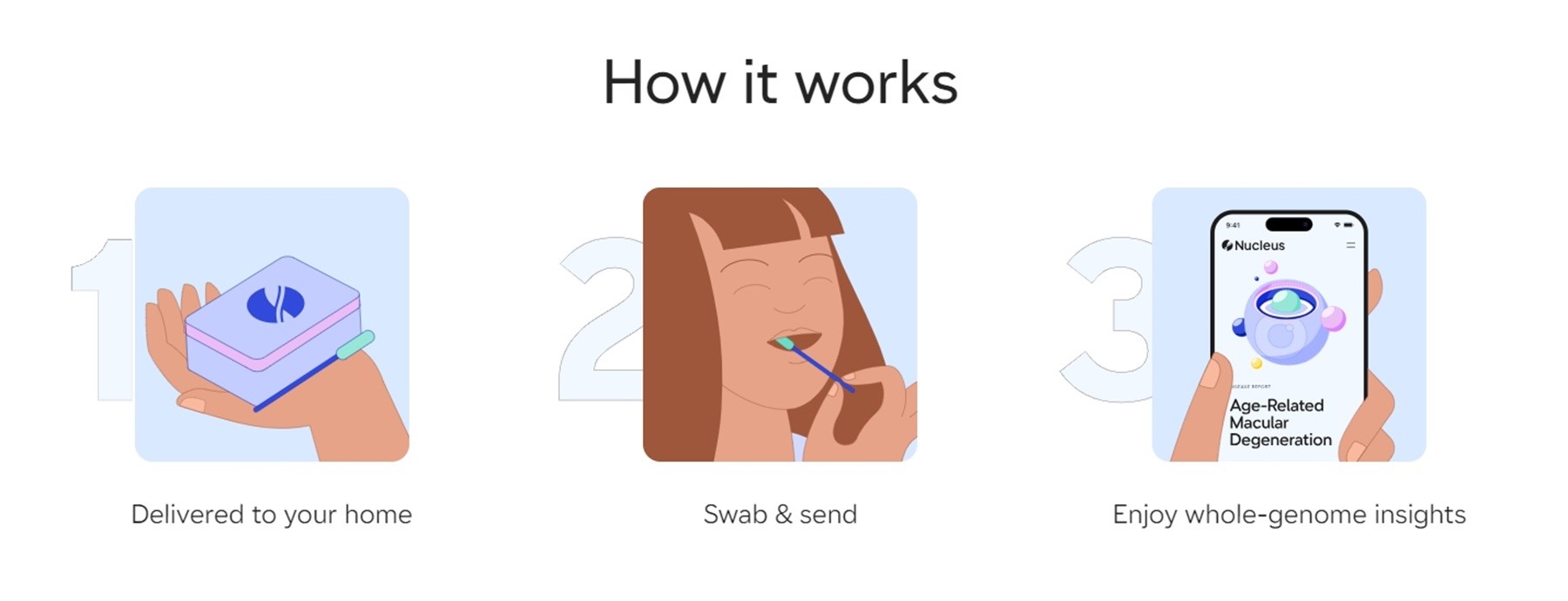
Source: Nucleus
Here’s how you can get started with Nucleus Premium:
Provide your personal information
Order your kit
Nucleus is HSA/FSA eligible, so the costs can be covered by your health savings plan. The turnaround time for results is typically 6–8 weeks.
You may also like…
Interested to learn about other DNA testing services? Take a look at our other platform reviews:
Featured image source: Suzy Hazelwood












